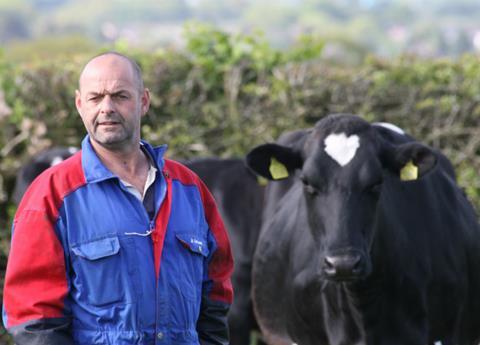
Name: Michael Oakes
Role: NFU national dairy board chairman
Age: 50
Location: Beacon Farm, Rednal, West Midlands
Oakes has been tending his herd for past 30 years. The father of two is a member of dairy co-op Arla and keeps 180 pedigree Holstein cows. On his election to the post of dairy board chairman in March, he pledged to help build ’build newer, stronger relationships throughout the supply chain’.
This article is part of our 2016 Dairy digital feature.
The dairy sector has lurched from crisis to crisis in recent years, as a global supply and demand imbalance has sent dairy commodity prices – and the price farmers are paid for their product – plummeting.
We’ve seen mass protests, cows tramping down supermarket aisles and widespread farmgate price cuts; many farmers have been forced out of business. Since March, British dairy farmers have had a new figure representing them: Michael Oakes, who was elected the National Farmers Union’s new dairy board chairman.
Tough times call for tough people. In his first in depth interview on the crisis, Oakes tells The Grocer how the NFU is speaking up for farmers, and shares his views on everything from market volitility and Brexit through to efficiency and free range farming…

Many have suggested that times have never been tougher for the dairy industry. You’ve been in this business for the past 30 years. So what’s your view? What effect has the slump in dairy commodity prices had on farmers and what should retailers and processors be doing to support farmers?
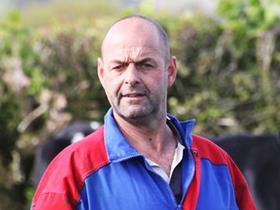
This is the deepest and longest crisis anyone can remember. I’ve just seen someone’s milk cheque from 1989 where they were being paid 17ppl. It’s also complicated by the variance in price paid to those supplying liquid to retail and those on more commodity-based contracts.
The slump in commodity prices knocked the wind out of everybody’s sails. Dairy farming is hard, physical work with long hours in any weather. Receiving a milk price that’s far below your cost of production and hearing constant announcements of more price reductions month after month has taken all the joy out of the job. Many farmers are asking themselves why they’re still doing it and how long they can keep doing it for. You also need to consider the impact on family and employees – often unrecognised but very real. It’s normally the wife that has to pay the bills, do the shopping, even talk to feed merchants about the market, and it’s no joy doing that when you’re struggling to keep your head above water.
We must recognise that some retailers (but not all) have realised the need to pay a fair price to guarantee a sustainable future supply of liquid milk. It’s been tough for some of them to stick to that principle as others have ruthlessly cut the retail price of milk with no support in place for the supply base, but I think more can and needs to be done with other products in the dairy aisles – especially cheese. Retailers have looked to source more British dairy products, too, which is positive, but we need to ensure they stick to this once the markets pick up.
Relationships with processors are far more variable – we need new thinking and more grown-up relationships where the risk and reward are shared throughout the supply chain. Too often processors in the middle of the chain can either pass the risk up the chain to retailers (in increased price) or more likely down the chain to farmers (in a lower milk price). I’m tired of looking over at Ireland and seeing how their co-operatives are supporting their supply base through various initiatives – be that fixed-price fixed-term contracts or a financial loan with repayments based on milk price (the Glanbia Milkflex loan).

So it seems farmers are being pushed to the brink. What has the NFU done for members to help cope with market volatility? And, with Britain set to decide on its future in the EU, how do you think farmers should be voting?

It’s our job, alongside AHDB, to educate farmers on ways of working with volatility. We’re part of AHDB’s Volatility Forum, which will look at best practice in other countries and see what can work in the UK. We’re working with those who trade in futures markets and make their living managing risk to see what should be on offer for UK dairy farmers.
Wherever you look in the world, most dairy farmers manage risk through initiatives set up by their co-operative or milk buyer. We’ve been trying to encourage our milk buyers to offer schemes such as Fonterra’s guaranteed milk price scheme or the Irish co-ops’ fixed-price, fixed-term contracts. What we have seen is that data is king. We need trust in that data before farmers will trust milk buyers and others in managing risk. This is why we’ve been lobbying the European Commission and Defra for mandatory price reporting and a EU dairy index. We’ve also been submitting evidence on dairy futures markets and contractual relations to the EU’s Agri Markets Taskforce.
Personally I’ll be voting to remain in the EU. As an NFU officeholder I was part of a long debate in Council where there was agreement that, when looking at agriculture alone, we are better staying as part of the EU. Brexit brings for agriculture too many unanswered questions and the confusion that could reign post 23 June will not help our dairy sector. Just look at the last 12 months – any support our dairy farmers have received has come from Brussels not from London, and European intervention (where the EU steps in to buy dairy commodities once the price falls below a certain level) is currently the biggest buyer of dairy product in the EU and we can at the moment still sell into it. If the vote does go the other way, the NFU has already been considering what a UK agriculture strategy should look like so rest assured we will be fleet of foot in getting the best outcome for our members, and UK agriculture.
Seriously, what has our government done? Just recently we’ve seen the German government announce two separate finance packages to support their dairy and pig farmers, Italy and France are planning a pilot country of origin scheme, and Ireland has a positive, comprehensive and collaborative agri strategy for the future. Here in the UK we’re still waiting for Defra’s 25-year Great British Food and Farming Plan plus its dairy exports plan, and improvements in the voluntary code of practice on labelling. Milk buyers are flouting the conditions of the industry’s voluntary code of practice on contracts and we have little trust in some of the market information that is collected from milk buyers (should Defra not audit this?)
We’ve seen ominous guidance from the Department of Health and Public Health England on the role dairy should play in a balanced diet and there are even more threats looming with the obesity strategy if we see more of the same from the DH. There have been a few positives, though – we have seen five-year profit averaging being brought in, which will be helpful once farmers start seeing profits, and there is discussion on how the European Investment Bank can support dairy farming in the UK. Much now is reliant on the EU referendum vote.

Production efficiency, the dairy deficit and free range farming are all subjects that have made headlines in recent months, along with the prospect of a slow recovery in prices due to a fall in production. What are your thoughts?

This market downturn has forced farmers to constantly keep an eye on costs and improve efficiency. The recent fall has been so great, though, that we’re constantly playing catching up. In the last 12 months I’ve reduced my own cost of production from 28ppl to 21ppl, but in the same time my milk price has fallen down to 19.1ppl. I still need to look at making more efficiency gains.To become more efficient sometimes needs new investment and farmers who are struggling to keep their heads above water at current farmgate pricing will not be looking at investment as a proposition at the current time.There are some costs within the supply chain that are ultimately being passed back to farmers and we need to work together as a supply chain to ensure these costs are fairly allocated.
UK dairy farmers have huge support from our consumers and we need to harness that through better public procurement and better sourcing practices. We also need to look at what type of products we are importing and why that’s the case. If they are products of specific geographical origin, such as parmesan or feta, it’s understandable, but we can, and should produce most other dairy products here in the UK. Overall dairy self-sufficiency in the UK is around 81% but it’s over 100% for liquid milk. Improving our self-sufficiency levels will sort out the dairy deficit. Exports are also vital. Dairy UK has recently launched a dairy exports strategy and there’s a big role for Defra in there to help simplify the export certification process. We already export a good volume of dairy products but we need a clear sign from government and others to compete with the Irish and the Danes.
It’s still early days for farmgate prices but if what I’m seeing on futures markets does come true it’s looking like things could be on the cusp of improving. Supply is pulling back across the world and there are reports that dairy consumption will be bigger than the growth in production this year. On farm we’ve seen a price increase (Glanbia Cheese by 0.5ppl for July), a few price holds and now two positive Global Dairy Trade auctions. Some traders are concerned where they will source products for the end of the year so the right signs are there.
Dairy farmers choose the system they use to best suit their farm and situation. Regardless of whether the system is extensive or intensive, animal welfare is linked to the management of that system and not the system itself. On this point I’m tired of hearing individuals and organisations claim that cows in certain systems are “happier” or that the milk is “tastier” than in another system. We should embrace the diversity we have here in the UK and explain to the consumer why that’s the case.
In terms of branding, it’s right that we look at innovation and adding value to milk and other dairy products. If there is demand for a certain type of milk or cheese the processor will produce it and we’ve seen innovations galore over recent years in the UK dairy industry. Ultimately farmers and processors need to be demand led – but it’s our job at the NFU to inform consumers about the reality of UK dairying and the different systems used.
Next article - The global scoop: what can we learn from world ice creams?
Previous article - Infographic: Britain’s top five cheese export markets
10 Things You Need To Know About... Dairy

Dairy is in dire straits. Prices are falling through the floor as retailers use milk and cheese as a footfall driver and farmers are being forced out of business…
- 1
- 2
- 3
- 4
- 5
- 6
- 7
 Currently
reading
Currently
reading
The NFU's Oakes: 'EU does more for farmers than London'




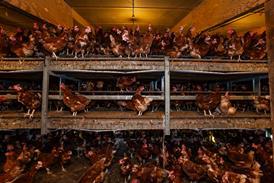



















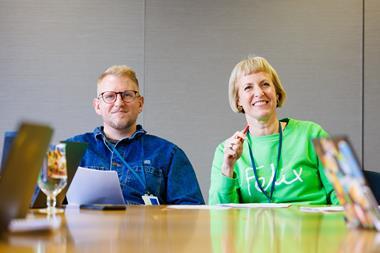

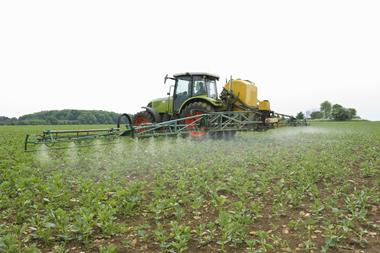
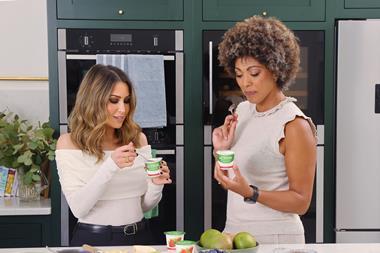



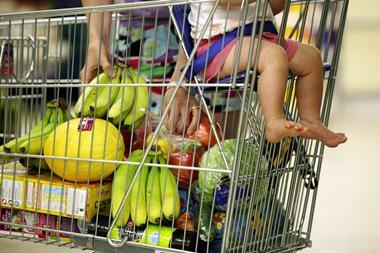


No comments yet